Conference on Affirmative Action in Higher Education
03.19.08 to 03.21.08
A conference at the India Habitat Centre, New Delhi.
Download the Conference Programme (PDF)
Photos from the conference
In the United States, India, and South Africa, institutions of higher education remain divided on the principles underlying affirmative action. There is also wide disagreement over the best mechanism for institutionalizing affirmative action. The philosophical, legal, policy, and institutional debates have been highly contentious. This conference illuminated the scholarship and public policy issues involving affirmative action in higher education through a comparative approach.
Speakers from a variety of disciplines, including law, philosophy, political science, economics, and sociology met over three days to present papers and discuss themes of discrimination, merit, admissions processes, and the legal issues surrounding affirmative action in higher education.
Our comparative approach focused on the United States, India, and South Africa. Developing greater familiarity with the similarities and differences in the challenges to enacting successful affirmative action policies in these diverse nations was one of our primary goals. The conference succeeded in provoking a lively debate about the goals of a system of higher education, the nature of merit, the role of diversity in preparing students for citizenship in complex societies, mechanisms for ending entrenched discrimination, and the prospects for a complex approach that would accord weight to a wide range of admissions criteria.
Academic participants from the United States included Martha Nussbaum and Diane Wood (both of the University of Chicago), Henry Richardson (Georgetown University), Thomas Weisskopf (University of Michigan), and Lani Guinier (Harvard). From South Africa we were fortunate to have Saleem Badat, Vice Chancellor of Rhodes University.
Indian participants included Prof. Madhava Menon (National Judicial Academy), Prof. D. Parthasarathy (India Institute of Technology, Bombay), Prof. Satish Deshpande (University of Delhi), Prof. Jayati Ghosh (Jawaharlal Nehru University), Prof. Zoya Hasan (JNU), Prof.
Rajeev Bhargava (University of Delhi), Deepak Nayyar (JNU), Prof.
Balveer Arora (JNU), Prof. T.K. Oommen (JNU), Prof. Harjit Singh (JNU), Prof. Prabhat Patnaik (JNU), Prof. P.M. Kulkarni (JNU), and Prof.
Rochana Bajpai (School of Oriental and African Studies, University of London).
Participants currently working primarily outside academia included S. K.
Thorat, chairman of the University Grants Commission, Prof. Ravivarma Kumar, Senior Advocate of the Supreme Court of India and a Visiting Professor at the National Law School of India, Bangalore, Dr. Balchandra Mungekar, member of the Planning Commission.
This free conference was well attended by graduate students, academics, politicians, journalists, members of the business community, and members of the general public. Participants had the opportunity to interact informally during meals held at the Habitat Centre, as well as at a formal dinner and discussion of the conference hosted by Shri Mohammad Hamid Ansari, the Vice-President of India.
The events were generously co-sponsored by the Center for Comparative Constitutionalism at the University of Chicago and the Jawaharlal Nehru University, New Delhi, with additional support from the University Grants Commission, New Delhi.
Please find a full schedule and list of paper titles here.
Photos:
 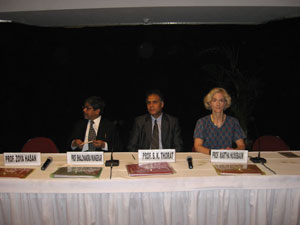 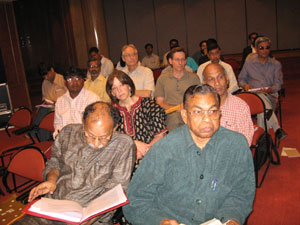 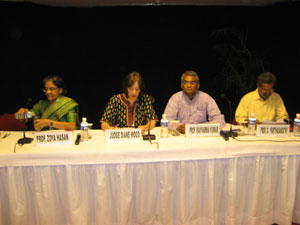 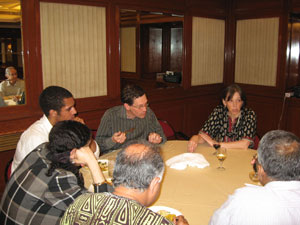 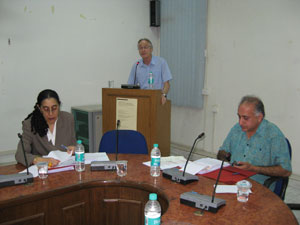  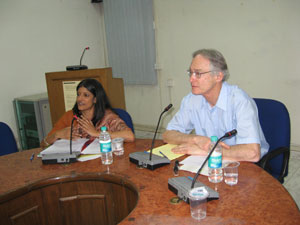 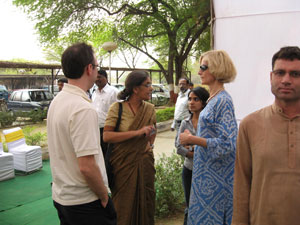 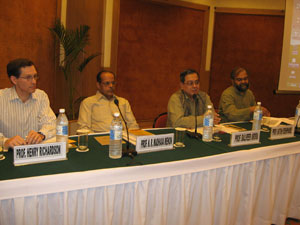 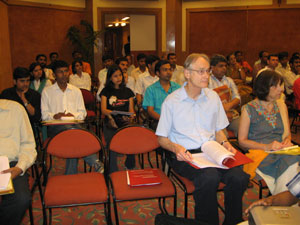 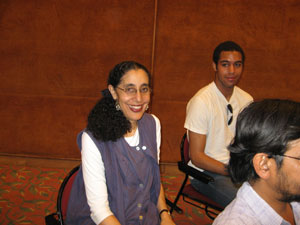 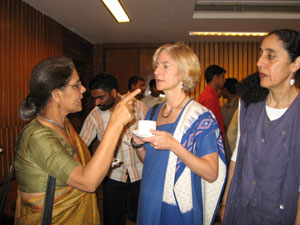 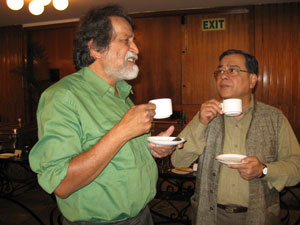 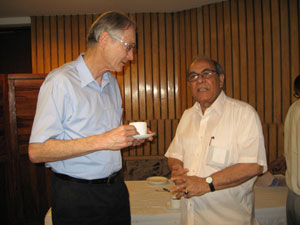 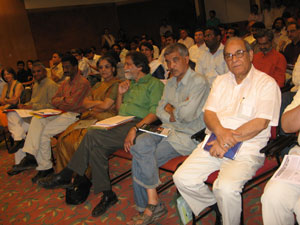  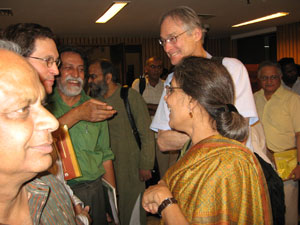
|

